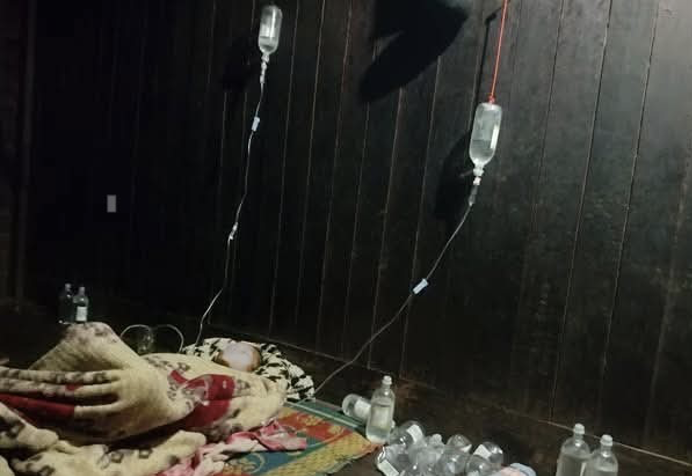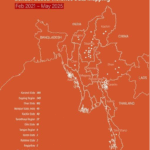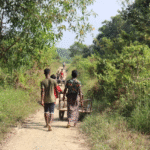Health organizations report that diarrheal infections are increasing among the people in Chin State due to lack of access to clean water and fly-proof toilets during their prolonged displacement and that they should report any cases to nearby health workers as soon as possible.
In southern Chin State’s townships, both adults and children have been affected by diarrhea and suspected cholera cases. Over the past two months, more than 480 cases have been reported, including four deaths, one of which was an infant, according to health groups in Chin State.
A female healthcare official from one organization stated that most of the children affected by diarrhea in Paletwa Township are unvaccinated children under two years of age.
“Everyone drinks untreated water while they’re on the move as displaced people. Also, they don’t have access to fly-proof toilets. These are the side effects of war. People’s immune systems are also weakened. So this year, we’re seeing more cases than previous years,” said the female healthcare worker.
According to the health organization’s data, from mid-December 2024 to the first week of February 2025, there were 143 cases in Mindat Township, 190 in Matupi Township, 24 in Kanpetlet Township, and 124 in Paletwa Township.
Furthermore, four deaths were recorded: two children under one year of age in Paletwa Township, and one child under one year of age and one adult in Mindat Township. A health organization official working in Chin State noted that child mortality, particularly among those under five, has increased.
“Both adults and children are affected, but the incidence rate is higher among children under five. Most deaths are occurring among children. Unlike adults, it’s difficult to get them to drink oral rehydration salts when they have diarrhea. And even for IV drips, we don’t have health workers in every village,” the official explained.
Currently, the outbreak is more prevalent in villages with high population density and those along main roads with frequent movement of people.
The Chin health organizations are providing immediate treatment with oral rehydration salts and necessary medications, as well as distributing water purification tablets and chlorine for drinking water treatment.
A healthcare official emphasized the importance of immediate oral rehydration therapy, promptly seeking medical attention from nearby health workers, using proper toilets, covering toilet bowls, ensuring pit latrines are fly-proof, properly disposing of used tissues/paper/sticks in covered bins followed by burning, thorough hand washing with soap after using the toilet and before and after meals, maintaining food hygiene, and boiling filtered drinking water.
The health organizations working in Chin State noted that they need support from both the public and local administrative authorities to provide more effective public health care on the ground.
Sent by KMG.




